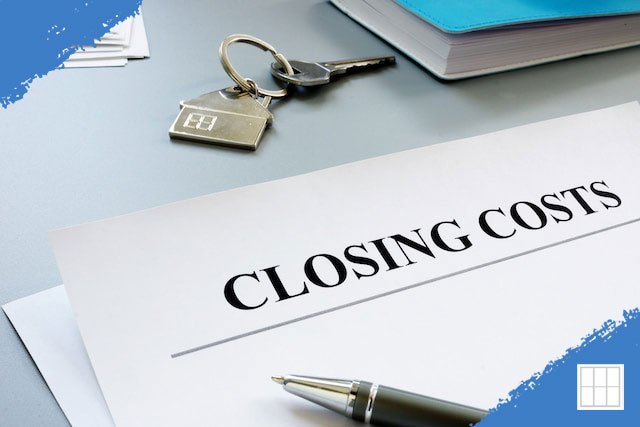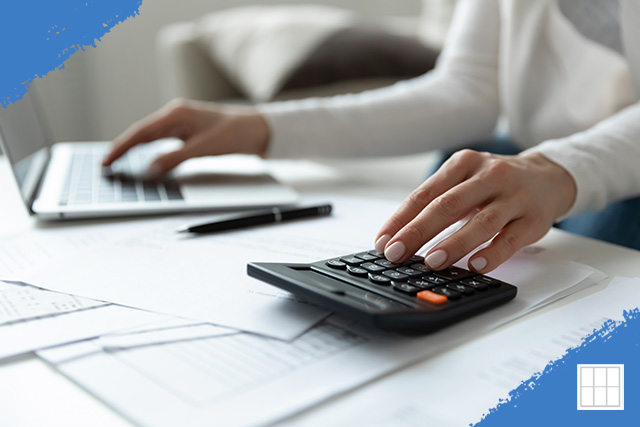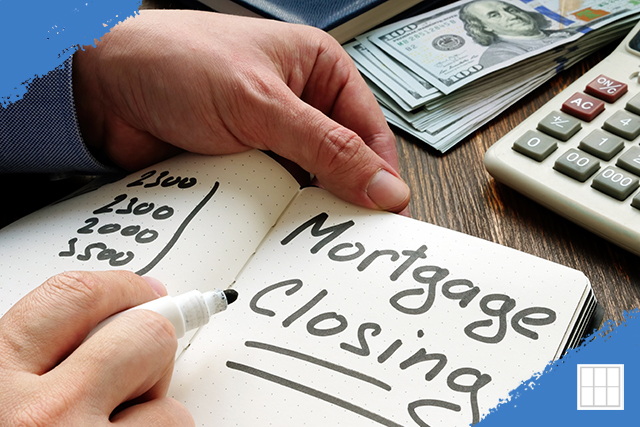When buying a home, understanding the various components of your mortgage is crucial. One important…

Mortgage Closing Costs: When Buying or Refinancing
Mortgage closing costs are an essential aspect of buying a home. Knowing what to expect helps in planning your finances. In Kansas City, these costs can vary depending on various factors. This comprehensive guide aims to break down the components and provide clarity.
What Are Mortgage Closing Costs?
Mortgage closing costs are fees associated with finalizing your home loan. They cover various services and expenses incurred during the process. These costs are separate from your down payment.
Breakdown of Closing Costs in Kansas City:
Closing costs in Kansas City typically range from 2% to 5% of the loan amount. For a $300,000 home, expect to pay between $6,000 and $15,000. The exact amount depends on various factors.
Appraisal Fees
An appraiser is essential for determining the home’s market value. This fee typically ranges between $300 and $500. It ensures the lender does not lend more than the property is worth.
Credit Report Fees
Lenders check your credit score to assess your risk level. The credit report fee usually ranges from $25 to $50. This fee covers the cost of pulling your credit report.
Loan Origination or Discount Points
Lenders may charge an origination fee, aka points, for processing your loan. This fee is typically about 0.5% to 1% of the loan amount. It covers the administrative costs involved in creating the loan.
A discount fee, also known as a mortgage point, is a one-time charge paid upfront to reduce the loan’s interest rate. This fee is usually a percentage of the loan amount, with one point equating to 1%, and can result in significant long-term savings on interest payments.
Processing Fee
A mortgage processing fee covers the administrative costs of handling your loan application from submission to approval. This fee typically ranges from $300 to $500 and ensures that all necessary documentation and verification processes are completed efficiently.
Underwriting or Admistration Fees
Underwriting or administration fees cover the costs associated with processing and approving your mortgage application. These fees typically range from $500 to $1,000 and are included in your closing costs.
Title Insurance
Title insurance protects the lender against issues with the property title. This fee can range from $500 to $1,000. It ensures the title is clear of any liens or encumbrances.
Title Closing Fee
Title closing fees cover the costs of transferring the title and conducting a final title search. There may be other ancilary fees like courier charges. These fees typically range from $300 to $600 and are essential for ensuring the title is clear of any issues.
Recording Fees
Recording fees cover the cost of registering your new property with the local government. This fee usually ranges from $25 to $250. It ensures your ownership is legally documented.
Home Inspection Fee (Purchase Only)
Home inspection fees cover the cost of a professional assessment of the property’s condition, identifying any potential issues. These fees typically range from $300 to $500, providing valuable insight into the home’s structural and mechanical systems.
Breakdown of Prepaid Closing Costs in Kansas City
Prepaid costs are expenses you need to pay upfront. These include property taxes, homeowners insurance, and mortgage interest. They are necessary to set up your escrow account.
Property Taxes
You may need to prepay property taxes at closing. The amount varies depending on the home’s value and local tax rates. It ensures your taxes are current from the start.
Homeowners Insurance
Lenders require proof of home insurance policy at closing. You must prepay the first year’s premium, which can range from $500 to $2,000. It protects your investment and the lender’s interest.
Mortgage Interest
Mortgage interest accrues from the closing date to the end of the month. This amount depends on your loan amount and interest rate. It ensures interest is paid for the partial month.
Escrow Account Setup
An escrow account holds funds for property taxes and insurance. At closing, you may need to fund this account with a few months’ worth of payments. It ensures you can meet these obligations.
Flood Insurance
The cost of flood insurance varies depending on the property’s location, flood risk, and elevation, with higher premiums typically for homes in high-risk areas. According to FEMA (Federal Emergency Management Agency), the average flood insurance policy under the National Flood Insurance Program (NFIP) costs around $700 annually. Properties in high-risk flood zones may see significantly higher premiums, emphasizing the importance of understanding your flood risk and planning accordingly.
Factors That Affect Closing Costs
Several factors influence the total closing costs. These include the loan amount, property value, and lender requirements. Local taxes and insurance rates also play a significant role.
Loan Amount
The loan amount directly impacts certain fees, such as the origination fee. Higher loan amounts often lead to higher closing costs. It is essential to budget accordingly.
Property Value
The property’s value affects appraisal fees, title insurance, and taxes. Higher property values can lead to higher closing costs. Understanding this can help in financial planning.
Lender Requirements
Different lenders have varying requirements and fee structures. Shopping around can help you find a lender with lower closing costs. Comparing offers is crucial.
Local Taxes and Insurance Rates
Local tax rates and insurance costs can significantly impact closing costs. Kansas City’s rates may vary from other areas. It is essential to understand the local market.
Reduced Closing Cost Options
Purchasing a home with reduced closing cost options, such as no lender fee loans or zero closing costs, can significantly ease the financial burden for buyers. These programs are designed to minimize the upfront expenses typically associated with closing a real estate transaction, making homeownership more accessible. No lender fee loans eliminate specific charges like origination and processing fees, potentially saving buyers hundreds to thousands of dollars. Zero closing cost options, on the other hand, might roll these expenses into the loan itself or adjust the interest rate slightly higher to offset the costs. While this can result in a higher monthly payment, it reduces the immediate cash needed at closing, making it an attractive option for buyers with limited funds or those wanting to preserve their savings for other expenses.
Refinancing a home with reduced closing cost options, such as no lender fee loans or zero closing costs, can be an excellent way to manage financial outlays while securing better loan terms. These no cost refinance options are particularly beneficial for homeowners looking to lower their monthly payments or interest rates without the burden of hefty upfront fees. No lender fee loans waive specific charges like origination and processing fees, potentially saving homeowners significant amounts. Zero closing cost refinance options might incorporate these fees into the loan balance or slightly increase the interest rate to cover the costs, spreading the expense over the life of the loan rather than requiring immediate payment. This approach makes refinancing more accessible, especially for those who might not have substantial cash reserves.
There are Several Ways to Help Pay for Closing Costs
There are several ways to manage and pay for closing costs, easing the financial burden on homebuyers. One effective method is through seller concessions, where the seller agrees to cover a portion of the closing costs as part of the negotiation process. This can significantly reduce the buyer’s out-of-pocket expenses, making the transaction more affordable. Seller concessions are often negotiated during the offer and counteroffer stages, and they can cover various costs such as appraisal fees, title insurance, and recording fees. However, there are limits on how much a seller can contribute, so it’s essential to understand these restrictions based on the loan type.
Government programs and assistance are also valuable resources for covering closing costs, especially for first-time homebuyers. Many local, state, and federal programs offer grants, low-interest loans, or forgivable loans to help with these expenses. Additionally, first-time homebuyer programs often include financial assistance for closing costs, making the home-buying process more accessible. Gifts from family or friends can also be used to pay for closing costs, provided they are documented correctly and comply with lender requirements. These options, combined with thorough research and planning, can help buyers manage closing costs effectively and achieve their homeownership goals.
How to Compare Closing Costs
Comparing closing costs from different lenders is a crucial step in the home-buying process. The initial fee worksheet provided by lenders offers a preliminary breakdown of estimated fees associated with your loan. This document is useful for getting a general idea of the costs you might incur, though these figures are estimates and can vary. When reviewing the initial fee worksheet, pay close attention to common fees such as loan origination, appraisal, and title insurance. Use this information to compare across multiple lenders to identify the most competitive offers.
The loan estimate, a standardized form introduced by the Consumer Financial Protection Bureau, provides a more detailed and accurate comparison of closing costs. This three-page document must be provided by the lender within three business days of receiving your loan application. The loan estimate outlines essential details such as the loan amount, interest rate, monthly payments, and a comprehensive list of estimated closing costs. It also includes sections on the estimated cash needed at closing and potential changes to the costs before closing. Comparing loan estimates from different lenders gives a clearer picture of the overall financial commitment and helps you identify the best option.
Conclusion
Understanding mortgage closing costs in Kansas City is essential for homebuyers. By knowing what to expect and planning ahead, you can manage these expenses effectively. Being prepared and informed helps in making the home buying process smoother and less stressful.
Navigating the complexities of closing costs in Kansas or Missouri can seem daunting. However, with careful planning and a clear understanding, you can successfully manage these expenses. Kansas City offers a diverse real estate market, and being knowledgeable about closing costs will empower you to make informed decisions.
This comprehensive guide has covered various aspects of mortgage closing costs. From understanding the different components to preparing for closing day, each section provides valuable insights. Whether you are a first-time homebuyer or an experienced homeowner, this information is crucial.
Remember to review all documents carefully, ask questions, and seek professional advice if needed. By staying informed and proactive, you can navigate the closing process with confidence. Happy home buying!



